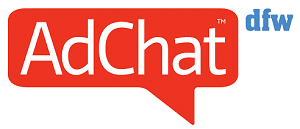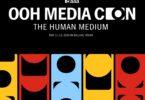A quiet revolution is underway in B2B buying—and it doesn’t involve more sales calls.
Today’s decision-makers aren’t looking for another demo; they want to steer the process themselves. Gartner reports that 75% of B2B buyers would rather make purchasing decisions without ever speaking to a sales rep. Forrester adds that 68% prefer to conduct their own research rather than engage with sales. Now they have a new advisor: AI.
Tools like ChatGPT, Microsoft Copilot, and others are becoming buyers’ trusted advisors, summarizing options, ranking solutions, and even making preliminary recommendations—all before your sales team ever steps in. In this environment, your website is no longer just a marketing asset. It’s the first—and sometimes only—touchpoint that shapes whether your brand is considered at all.
Is your website invisible to AI?
This is more than a trend; it’s a wake-up call. Search behavior is changing fast. When Google’s AI Overview appears in results, external click-through rates drop by about two-thirds on desktop and nearly 50% on mobile. Only 7.4% of desktop users and 19% of mobile users click any of the links shown. A Pew study found that when AI Overviews appear, only 8% click standard search results, and only 1% click the original source link! In other words, if your site isn’t both human-friendly and AI-ready, you may never be seen.
As AI adoption accelerates, AI-driven search is expected to cannibalize—and in many cases rapidly outpace—traditional organic search. Instead of clicking through multiple links, buyers will increasingly get curated answers and recommendations directly from AI interfaces, often without visiting your website at all. If your content isn’t structured to be surfaced and cited by these AI tools, your visibility will shrink, regardless of how strong your organic rankings are today.
The new buyer’s journey is AI-assisted
Whether it’s ChatGPT, Microsoft Copilot, or another tool, buyers are using AI to shortcut their hunt for information. They’re asking for side-by-side comparisons, pros and cons, or even recommendations ranked on their priorities. But here’s the catch: AI doesn’t “read” like a human. It won’t fill in gaps with inference or context—it relies on clear, structured, and explicit information it can easily extract. If your site isn’t organized in a way that both people and AI can instantly understand and recommend you, you’re already at a disadvantage.
In the past, the big question was, “Do we have enough information to get them to call us?” Marketers were often told not to “give away too much” online for fear of removing the incentive to talk to sales. Today, the real question is, “Is our website built to be easily understood and recommended by AI?” Because if it isn’t, you could be out of the running before you even know you were being considered.
Rich storytelling matters, but if the specifics such as dimensions, capabilities, and use cases are buried in PDFs or scattered across pages, AI-driven research can’t pull them in a search. That means neither the buyer nor their AI advisor will surface you as a contender.
Speaking to humans and machines
Your website now needs to speak two languages:
- Human: Stories, context, and emotional connection to build trust
- Machine: Structured, specific, and consistent facts that can be compared, summarized, and repeated without distortion
Machines don’t navigate the way people do. They scan for structured cues, headings, data points, and relationships between information. AI “readability” isn’t just about keywords. It’s about precise product and service descriptions, consistent terminology, logical navigation, and formats that large language models (LLMs) can easily parse. This is the evolution from SEO to AIO (AI Optimization), making your content discoverable and recommended by people and machines.
Turning indecision into confidence
In B2B, indecision is a quiet threat. Overwhelmed buyers often put big decisions on the back burner. The risk of making the wrong buying decision feels too high compared to simply doing nothing. That’s where confidence-building content matters—like case studies, social proof, clear value propositions, and transparent pricing or process details—make a big impact. Your job is to reduce the perception of risk, so the decision feels safe.
By the time a buyer reaches your sales team, they’ve already gathered most of the information they need. Your reps aren’t there to repeat what’s on the site—they’re there to confirm the buyer’s choice, address concerns, and deepen relevance. This requires sharper questions, stronger framing of problems, and better alignment with the buyer’s internal narrative.
Win the buyer and the bot: Where emotion meets AI-readiness
Winning in this new buying era isn’t about choosing between emotional storytelling and digital optimization, it’s about making them work together.
On one side, you need emotional brand experiences—a powerful corporate video, a clearly articulated brand purpose, resonant storytelling in case studies, or any touchpoint that builds trust and gives buyers the confidence that choosing you is the right move. On the other, your website must be AI-friendly—structured, clear, and information-rich—so you’re not just on the buyer’s radar, but on AI’s recommendation list.
When emotional resonance and AI-ready content work in tandem, you’re not just competing for attention, you’re positioning your brand to be shortlisted by both humans and machines. That’s how you move from “consideration” to “confident decision.” In today’s AI-driven B2B buying, that’s where the real win happens.
To stay up to date on agency news, awards, and blog posts, subscribe to our Spire Wire newsletter.









